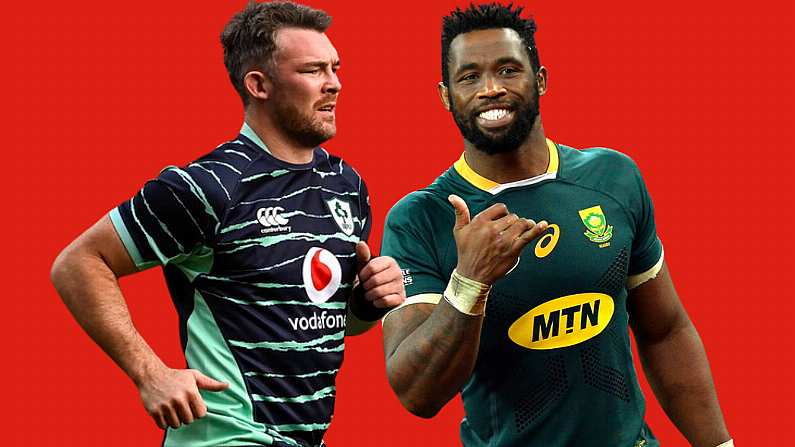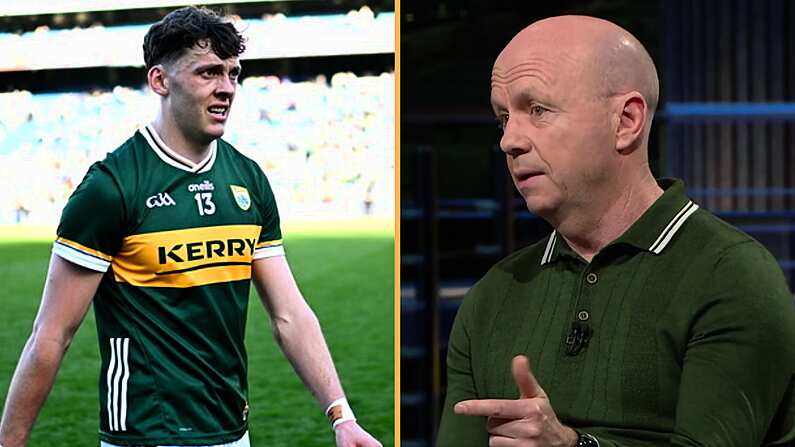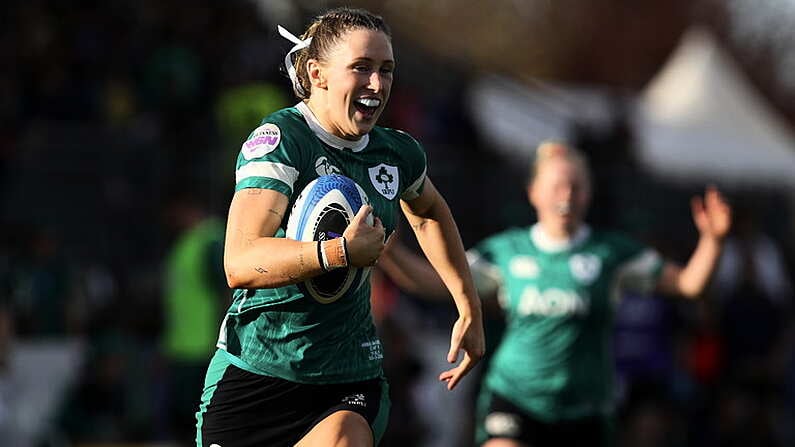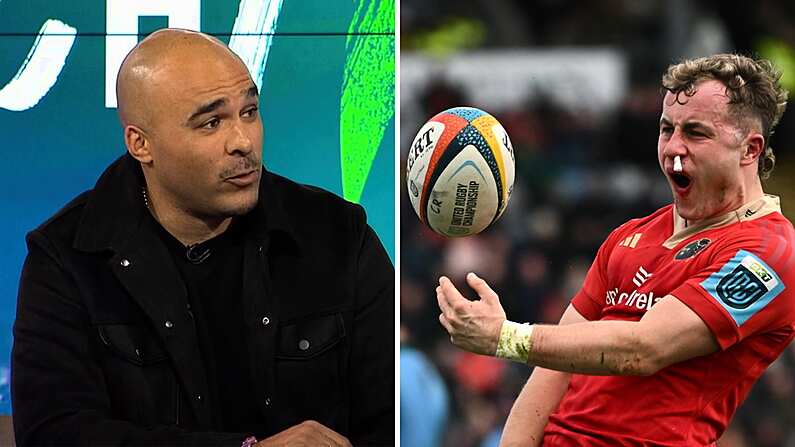It's not the first time it's happened and, regrettably, we don't foresee it being the last. But on Saturday evening, Ireland and South Africa will once again face off in the Aviva Stadium with unnecessarily similar kits.
The world champions and the world's #1 ranked side clash in a mouthwatering Saturday evening Autumn international but, for many fans, the game will be a serious struggle.
Despite the fact there are only two major nations in world rugby that Ireland clash with, they are once again fielding their team in a dark away kit, which will wreak havoc not just for colour blind viewers, but for the rugby fandom at large.
We spoke to Kathryn Albany-Ward of Colour Blind Awareness this week about the lack of understanding shown by Ireland's kit design, and what more can be done to avoid such issues in the future.
Ireland v South Africa: Colour Blind Awareness disappointed with yet another avoidable kit clash
The problem of kit clashes in sport is becoming a more widespread topic, with issues such as red-green colour blindness moving more into the public consciousness.
Despite this, on Saturday night, Ireland's rugby team will line out in a dark kit with green elements against a South Africa side wearing a dark green kit.
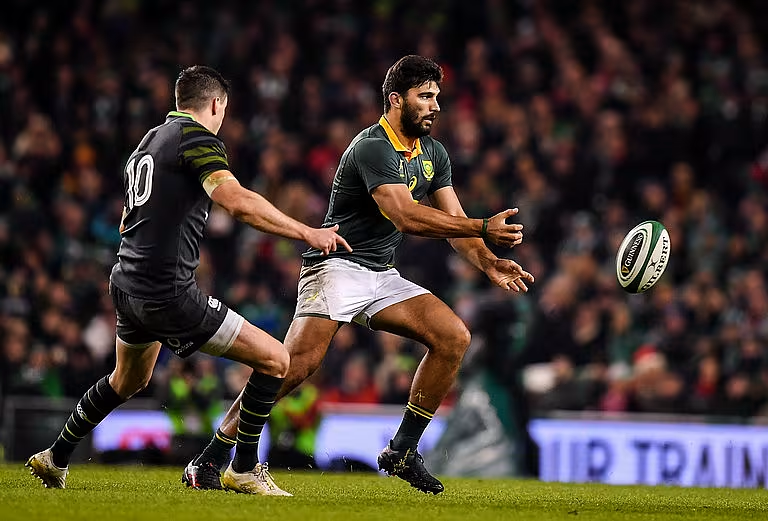
The 2017 Autumn International between South Africa and Ireland was also marked by a farcical kit clash. Photo by Brendan Moran/Sportsfile
This is no slight on the quality of the jersey design, but the fact that Ireland have chosen not to actively make their kits look sufficiently different from the opposition in one of the few games all year where a change is required is disappointing.
This red-green colour blind author spoke to Kathryn Albany-Ward, founder and CEO of Colour Blind Awareness, and she detailed why she was disappointed but not surprised by the Ireland kit for their South Africa clash:
They’ve certainly got form in terms of Ireland v Wales in the Six Nations and what they seem to be doing is passing off any of the responsibility onto the unions.
Then the unions will say, well, you know, we've got these kit deals. Why can't you vary the contract? It can't be in the best interests of Canterbury to get all this bad publicity. So surely they would also want to renegotiate.
You know, it's not beyond the wit of man, but obviously to me, I mean, it seems to be beyond the wit of Irish rugby and Welsh rugby to understand the negative implications on them of continuing to do it.
One perspective often forgotten about is that 8% of all men are colour blind, meaning that any professional rugby team can expect at least 1-2 members of their squad to suffer from colour blindness.
Kathryn Albany-Ward pointed out the harm this could do to teams who wilfully ignore these issues when designing and choosing kits for test matches - and the viewership of matches:
We've been doing research on the prevalence of colour blindness at elite level. So we haven't done it for rugby players specifically, but we've been working with national and high level elite clubs to screen players, and we are finding that we've got slightly less than the statistical average of a number of players in every squad [who are] colour blind. So for football, that's at least one in every team - in rugby, we know it's 2 to 3 and every team.
So, you know, ignoring the fact or pretending that you might have some kind of special squad that doesn't have anyone who's colour blind in it is just fooling themselves, fooling themselves. So you know, you know how many colour blind people are out there and you know what the implications are. It's just I think it's wilful, deciding that you don't need to do it, because you can find an excuse not to do so from a playing point of view.
On top of that, they've got the broadcasters. So people turning off TV coverage, not bothering to watch it. That has a direct impact on the advertisers and the money that they get from them. Because, you know, if 8% of men are switching off for a colourblind kit clash, which most of them will, then that's going to impact eventually.
It's clear that the implications are far wider than an inconvenience for just 8% of male viewers - with a clash as egregious as Saturday night's will be, the discomfort will likely impact a far higher percentage of fans, both in the Aviva Stadium, and on TV screens across the country.
The most frustrating element of this situation, as Albany-Ward says, is its avoidability. There is no need for Ireland's away kit to be so similar in shade to their home, and it would be just as easy for a white or lighter-coloured kit to be used to contrast with the dark shade of green in their home kit. When the express purpose of a change kit is to provide contrast to opposition teams, and it doesn't even tick that box, fans have a right to be frustrated.

Colour blind fans also regularly struggle with the red-green clash posed by Ireland v Wales games in the Six Nations. Photo by David Fitzgerald/Sportsfile
But, for the third time in South Africa's last four visits to Ireland, they will once again wear a kit which is unnecessarily similar to the Springboks'. Despite the outcry on both occasions in 2012 and 2017, the situation has not changed. Albany-Ward notes that the NFL had the opposite reaction after their failed "Colour Rush" project in 2014, and brought in new regulations to ensure teams were easily distinguishable for colour blind fans.
Albany-Ward says that she finds the consistent kit clashes between Ireland and South Africa, or the lack of attention paid to red-green colour blind viewers when it comes to Ireland v Wales "fascinating because it doesn't make any sense, does it?"
She says that she cannot understand the persistent clashes when the "solutions are so easy, and the positive impact of implementing such solutions is so plain to see." It's hard to argue.
The only positive from the Ireland v South Africa kit clash for Kathryn Albany-Ward is that it is so egregious that it may bring wider notoriety of the issue to fans who do not typically struggle with red-green kit clashes, for example, and drive the rugby unions in question to push for more immediate change.
I think that this particular Ireland v South Africa game is going to be quite interesting because I'm not colour blind and even to me those colours are too similar because of the shades of colours that they're using. I don't think this is only going to be a colour blind person's nightmare kit clash. So it sort of heightens awareness of what it's like if you're colour blind for the red-green kit clashes - and it's easy to solve it! It's just light against dark.
In the Six Nations, what makes me really angry is that it's OK to wear a white kit if you're France or Italy playing each other or Scotland, all of those three playing each other. The home team always wears white because everyone knows that's a kit clash and it's accepted. But if we also know it's a kit clash if Wales, play Ireland - then the home team should also be wearing white. It's a no brainer.
Ireland v South Africa will be a struggle for many fans this evening, but one can only hope that meaningful effort is made by Irish Rugby and their counterparts with the Springboks and Welsh Rugby to make the simple changes which would be game changing for colour blind viewers.

